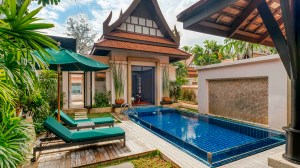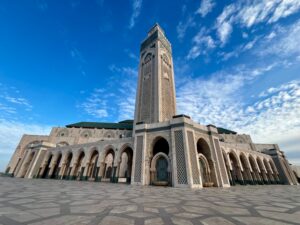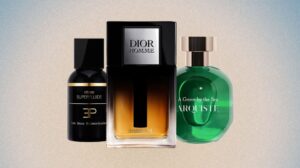In the third season of The White Lotus we got to see therapists clad in lilac pajamas kneading supine guests with a heated herbal ball. We got to see Walton Goggins try “stress management meditation.” We got to see a lot more than that. Thailand, “The Land of Smiles,” and wellness are now so closely associated that they’ve reached their satirical apogee. Never mind that many Thai healing practices go back more than 2,500 years, Mike White’s “funny look at death and Eastern religion and spirituality” will draw more bandwagon westerners, not less. As a result, luxury hotels across the country are investing heavily in wellness tourism, an industry worth $35 billion to Thailand in 2024, with a growth rate of 8.5 percent, according to the Global Wellness Institute.
The trick now is knowing where to go and which Muay Thai boxing schools, silent monasteries, or health spas to choose.
A safe place to start is with the OGs. For Instance, this year the holistic wellness resort Chiva Som in Hua Hin, located in the northern portion of the Malay Peninsula, celebrates its 30th birthday. Nestled on the beach, it was one of the country’s first modern health retreats, focusing on fresh air, walks on the beach, wholesome food and relaxation. Today, the resort has 54 Ed Tuttle-designed rooms and villas, 70 treatment suites, more than 80 customized fitness programs, and a raft of facilities—including hydrotherapy pools, pilates reformer studios, gyms, dance rooms, flotation pods. Its Niranlada Medi-Spa offers everything from aesthetics and blood work to genomic testing.
“Going forward, we’re planning to introduce more workshops and expert consultants to help people to navigate our changing world,” says Dr. Jason Culp, Chiva Som’s director of research and development. “We’re bringing in evening classes to adapt to climate change. New add-in programs will cover ‘Sleep Enhancement’ and ‘Metabolic Reset,’ designed to help people adjust their diet, activity levels and sleep when using weight-loss drugs like Ozempic. Plus, there will be more of a focus on mental and emotional—art therapy, music therapy, spousal relationship therapy.”
The new Banya Tree Veya has a hidden wellness-centric escape within the resort.
Courtesy of Banya Tree
But there is plenty of new as well—and if you are quick you can beat the crowds. In Phuket, Banyan Tree recently rolled out Veya, a 12-villa escape hidden within the grounds of the main hotel with its own menus of nourishing wellness cuisine and mindfulness workshops, as well as easy access to Bang Tao beach and Cherngtalay Night Market. Down the coast, Amanpuri’s wellness concierges can arrange diagnostic screening for cardiovascular health, hormonal deficiencies and immunity dysfunction, alongside sushi dinners, yacht trips, and pampering half-day heat and water immersions in their new private Spa House. Up north, the Aleenta Chiang Mai has launched “Beyond the Ordinary” retreats including 10-day Vipassana Deep Meditation programs which are described as “monk level,” if you fancy following in the bare footsteps of Jack Dorsey.
Even boisterous Bangkok is growing into a secondary wellness destination. Adding to its already extensive spa program, the Mandarin Oriental (which opened Thailand’s first hotel spa back in 1993) has started offering three-day wellness retreats tailored around sleep and mindfulness. On the other side of the Chao Phraya River, The Peninsula has half a dozen complementary health and wellbeing activities every day of the week: vinyasa yoga, HIIT, aqua aerobics, plant potting, meditation, on top of hours-long rituals at the spa.
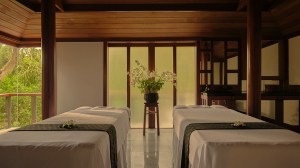
Amanpuri is Thailand’s OG wellness hub.
Courtesy of Amanpuri
In newer city hotels wellness is being integrated from the ground up and reflected into the architecture. At the Jean Michele Gathy-designed Four Seasons Bangkok an entire wing has been dedicated to an Urban Wellness Center, complete with rooftop swimming pool, Muay Thai boxing ring and a roll-call of visiting practitioners covering everything from hypnotherapy to past life regression to help with addiction. Across town, The Sukhothai snapped up land adjacent to the property to build The Sukhothai Spa, a veritable village of wellness inspired by the Wat Sri Chum’s ancient shrines and meditation halls—albeit with a salt-water swimming pool, hammams, a Bastian Gonzales PEDI: MANI: CURE studio and an anti-aging clinic.
“You can live on happiness, you cannot live on pleasure,” says Florence Jaffre, director of wellness for the Dusit Thani hotel group, which re-opened its flagship property overlooking Lumpini Park in September, following a complete rebuild bolstered by André Fu designed interiors.
“We’re trying to weave wellness into the whole property as a way to reduce the stress levels of our guests. Our treatments are very nourishing and are linked with movement, linked with food, and linked with daily wellness workshops. We have meditation, body scan, breathing, singing bowls, Thai boxing, yoga, aqua gym,” Jaffre says.
The spa itself, tucked behind a spectacular sixth-floor infinity pool flanked with whirlpools and plump day beds, appears more akin to something you might find in Bali or Mexico, with a womb-like domed chamber that ensures yoga classes and sound therapies genuinely resonate.
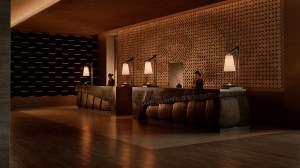
Every aspect of the new Aman Nai Lert Bangkok was built with wellness in mind.
Courtesy of Aman Nai Lert Bangkok
“Aman’s vision is to bring the brand ethos to global cities such as Tokyo, New York and now, Bangkok,” says Yuki Kiyono, the luxury hotel group’s Global Head of Health and Wellness Development in reference to the newly opened Aman Nai Lert Bangkok.
The bronze edifice, designed by Jean-Michele Gathy, has 52 suites (among the largest in the city), two restaurants, a private members club and a two-story 1,500-square meter spa kitted out with a fitness centre, Pilates studio, yoga room, banya steam bath, hydrotherapy pools and a clinic offering IV drips, cryotherapy and medical aesthetics.
“Thailand is the home of Aman’s first resort, Amanpuri, which has given us a deep knowledge of the country’s rich traditions of mindfulness and wellbeing,” she says. “As such, the Aman Nai Lert Bangkok will offer a unique connection to the city’s spiritual and cultural heritage, while integrating modern wellness trends.”
Credit: robbreport.com

